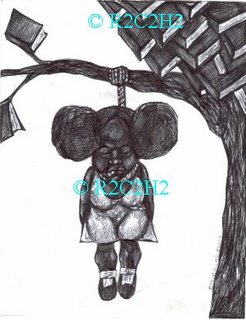
It's the beginning of the end.
By Peter Kirsanow
Coutesy of the National Review Magazine
The era of affirmative action may be coming to a close sooner than Sandra Day O’Connor had expected. This isn’t to say that racial preferences are about to become extinct, but that they will be likely dealt mortal blows in the near future.
What a turnaround. Less than four years ago, when the Supreme Court upheld the use of racial preferences in college admissions in Grutter v. Bollinger, the affirmative-action regime appeared not only invincible but on the march. Affirmative action had the support of all of the country’s elites: the academy, the media, Fortune 500 companies, civil-rights organizations — all of the bien pensants. Schools that had eliminated racial preferences before Grutter issued — like the University of Texas — resumed their use. Affirmative-action supporters were discussing how to extend the Grutter rationale beyond college admissions to high schools, the workplace, and other spheres of life.
Conservatives were despondent. The Supreme Court had issued the final word and it seemed that any further challenges to affirmative action would be merely tilting at windmills. Even such indefatigable opponents of racial discrimination as Ward Connerly admit that they were resigned to give up the fight.
Affirmative-action proponents reigned triumphant. But they hadn’t counted on the resolve of Jennifer Gratz, the plaintiff in Gratz v. Bollinger, the companion case to Grutter. Instead of fading into oblivion she convinced Connerly to form the Michigan Civil Rights Initiative (MCRI). The measure was simple. It prohibited the state government from treating people differently on the basis of race, sex, color, ethnicity, or national origin.
This startling proposition spurred the enormous affirmative-action establishment into, well, action. Massive resources were deployed against MCRI and its ragtag, underfunded group of supporters. Fortune 500 companies and labor unions alike lined up against the measure, devoting money, manpower, and publicity on behalf of preferences that dwarfed the resources of the MCRI folks. National civil-rights organizations joined the battle on the side of preferences. Armies of professors and other “experts” were dispatched to explain the benefits of discrimination to a receptive media. While not surprising, Democrats uniformly opposed MCRI, but even much of the Michigan Republican establishment opposed the measure or declined to support it.
On the eve of last November’s election, polls showed MCRI going down in defeat by twelve points. Instead, it won by a landslide, 58 percent to 42 percent — this, in a very blue state in a very blue year.
Michigan is the third blue state to reject affirmative action. (California and Washington are the others). In each case preference proponents — i.e. — the establishment — marshaled tremendous resources to defeat Ward Connerly’s initiatives. In each case Connerly made a simple appeal to fundamental fairness and won handily.
During a speech recently at the Heritage Foundation, Connerly announced a “Super Tuesday” against preferences — a plan to put the continued existence of government sponsored discrimination in serious jeopardy. Teaming again with Jennifer Gratz, Connerly’s American Civil Rights Coalition will seek to place anti-discrimination referenda on the ballot in at least five states in the November 2008 election. The selected states will be identified this spring.
The aim of the plan is to create a tidal wave against preferences that accelerates their demise. Coupled with imminent Supreme Court decisions in the Seattle and Louisville high-school “diversity” cases, the initiatives may wake up the nation’s elites to the inevitability of equal treatment under the law. Preference proponents will understand clearly that Super Tuesday may be, effectively, their last stand. Consequently, the campaign will be nationalized. Preference advocates maintain a huge advantage in resources and will employ every single one of them to defeat the initiatives.
Connerly understands that, once again, he’ll be outgunned. Scores of academics will twist the plain meaning of equal treatment into Orwellian knots. Media sympathetic to preferences will distort coverage of the campaigns, turning Connerly into the Grand Wizard of the Klan. Entrenched interests will muster thousands of troops to man phone banks, distribute leaflets and demonstrate against the referenda. False claims will be made that an end to preferences means your mother won’t be able to get a breast-cancer screen, high-school girls will be barred from playing basketball, and blacks will be shut out of housing.
Yet Connerly expects to prevail, because he gets what the elites often forget: Americans are a fair people who prefer equal treatment for all over social engineering by the anointed.


No comments:
Post a Comment